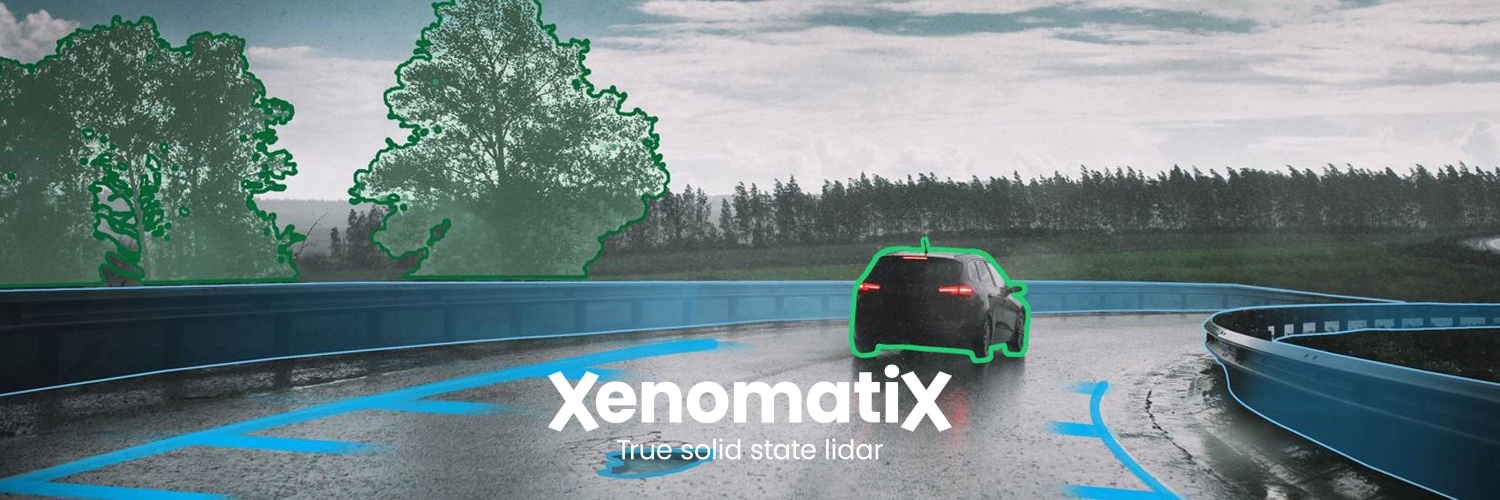
The car of the future will be ultra-comfortable, safe AND driverless. The story of how this could come to pass started with three laser technology researchers in a garage in Leuven, Belgium, 10 years ago backed up with advice from the Enterprise Europe Network.
"Our goals were, and still are, to develop a totally disruptive technology to make distance measurements based on light," recounts Filip Geuens, founder and CEO of XenomatiX. The company now occupies a two-storey building in the Leuven Research Park with a fully operational calibration lab. "We named our start-up XenomatiX after the amazing element ‘xenon’, commonly used for high-end vehicle lighting, and ‘matix’, referring to automation," he tells us.
Delivering 'the eyes' of self-driving cars is a tall order. The XenomatiX team were well aware that their goals were very challenging. They wanted to develop the new multi-beam solid-state LIDAR (laser) technology from scratch. So, they contacted their local Enterprise Europe Network office, Flanders Innovation & Entrepreneurship (VLAIO), one of the hosts of Enterprise Europe Network. "The development time for this technology is very long and it’s very difficult to find finance that will be sustainable. We knew that VLAIO’s mission is to support start-ups for R&D and finance, as well as offer good, sound advice for company strategy," Filip explains.
A one-stop service: tailor-made advice and financial support
Over the past decade of Network support, a team of dedicated agents have been giving XenomatiX advice. Magali Parent, adviser for innovation partnering with Enterprise Europe Network, told us that in 2013, XenomatiX secured first funding from VLAIO.
Based on this, the start-up now had finance to select and develop an application known as the ‘Flying Carpet’ in the automotive world. "The Flying Carpet was the ideal application to showcase our multi-beam technology and we worked with a suspension manufacturer to develop it. Using our multi-beam LIDAR to measure the profile of the road, the car suspension automatically compensates and literally glides the vehicle over the road surface," Filip explains.
The next big hurdle that XenomatiX navigated was to apply for the European Innovation Council (EIC) Accelerator programme. Filip continues the story. "EIC funding in our case was for scaling up. By this stage, we had progressed in the development of our game-changing technology, but we needed to plan future strategy and put a sales and marketing department into place. The sales cycles for any new technology tend to be very long," he notes.
XenomatiX was given practical assistance with preparing the EIC proposal and the pitch to accompany it. Magali recalls that the Enterprise Europe Network team helped the entrepreneurs to write the pitch, present it and then answer questions on their company in readiness for going before a panel at the EIC. The pitch is key as it can also be used to attract –and hook – investors.
One company, an array of products
Janne Kindt of Enterprise Europe Network, Flanders Investment and Trade, commented on XenomatiX’s unique status, which is key to their constant, unhindered development in a highly competitive market. "With XenomatiX, we have two market segments or products. The first is the automotive industry with the LIDAR technology and the other is mapping the state of roads for repair." Road inspection and digital road mapping with solid-state LIDAR technology provides road maintenance companies with 'a digital twin of the road'.
"The Network can help XenomatiX reach a balance between the two applications to ensure sustained development. The situation is dynamic and sometimes unpredictable with many unresolved issues regarding autonomous cars," states Janne.
"The problems surrounding self-driving cars are complex and the standards are very high so the acceptance of failures is very low," says Filip. Nevertheless, the vision the founders had some 10 years ago has not changed. "The plan is still to develop a very smart lighting system to help automation," he emphasises.
Progress within the company profile and prestigious awards
From start-up to scale-up, the statistics show how XenomatiX has evolved. From three founding researchers to a staff of 45 employees is quite an expansion. Looking at the current turnover, it now stands between EUR 3-4 million, Filip informs us. Significantly, the export share in turnover was 76 % in 2021 and now stands at between 85 and 90 %.
And the positive news keeps coming. XenomatiX was awarded a 'Trends Gazellen 2023' for the second consecutive year. To highlight the positive influence on the business climate in the region, the business magazine, Trends, organises the contest and analyses the growth of companies. "Comparison of the results in the previous year with those of five years earlier quantifies growth. By any standard, winning this contest 2 years in a row is very exceptional, and we are honoured that our technology and efforts are being recognised," Filip says.
The future is assured for XenomatiX
A team of Network advisors guided XenomatiX in their bid to secure funding from the EIC in 2022. With this success under their belt, XenomatiX can work on moving into new markets in parallel with further expanding their sales and production as leading companies from Silicon Valley to Asia are switching to XenomatiX technology and products.
Filip sums up: "The Network has helped us a lot during our growth process, it started with technology funding from VLAIO and continued with successful EIC funding from the European Commission."
From Enterprise Europe Network’s point of view, Janne comments: "Xenomatix is a good example of how innovation and scaling up go hand in hand. Innovation– in any form– will be needed to distinguish and scale up your company."